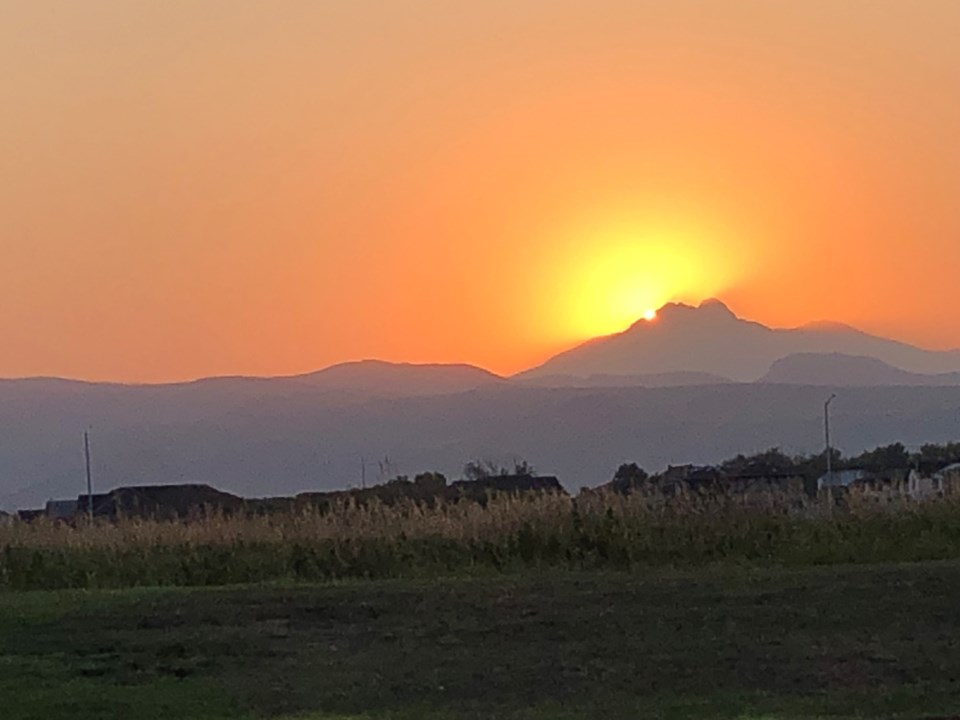Local governments, including Boulder County, are asking Colorado to do more to address its air pollution.
In September, the U.S. Environmental Protection Agency reclassified the Front Range, including Boulder County, as a “severe” violator of federal air quality standards for ground-level ozone. Under the federal Clean Air Act, Colorado is required to adopt an Ozone State Implementation Plan to bring the state’s pollution below levels that are dangerous to human health.
On Friday, the Colorado Air Quality Control Commission adopted an updated ozone State Implementation Plan while acknowledging that the plan will not fix the ozone pollution issue.
Unlike the protective layer of ozone in the upper stratosphere, ground-level ozone is a harmful pollutant that can permanently damage lungs and worsen lung conditions like asthma. Children, older people, those with lung conditions and those who work outdoors are especially vulnerable to the pollutant.
According to Colorado Communities for Climate Action, or CC4CA, a coalition of local governments including Boulder County advocating for stronger statewide climate policy, the plan could be disapproved by the EPA and some commission members expressed their frustration with the slow pace of the state’s Air Pollution Control Division.
The commission plans to convene stakeholders in 2023 to consider the most effective rules to bring down unhealthy air pollution levels for inclusion in the next air quality plan.
The rulemaking comes amongst recent revelations that the state has been undercounting pollution from the oil and gas industry.
“Local governments carefully analyzed what the state was claiming against the actual pollution data and found a huge discrepancy,” Boulder County Air and Climate Policy Advisor Cindy Copeland said in a release. “The actual nitrogen oxide pollution from oil and gas pre-production activities was higher than predicted in the proposed SIP. To the Air Pollution Control Division’s credit, they have now committed to fixing these serious problems.”
According to the CC4CA, some of the most effective measures to reduce pollution would be pausing oil and gas production in the nonattainment area during the summer peak ozone pollution season and placing emission limits on well drilling and fracking engines. These sources are among the reasons that the oil and gas industry is the top source of emissions that cause ozone, according to data included in the plan.
“The air we breathe affects each and every one of us and the time for strong action is now,” Boulder County Commissioner Matt Jones said in the release. “The effects of air pollution and, in turn, the climate crisis, are personal to me and many others in Boulder County. Less than a year ago, my wife and I had to evacuate due to the climate crisis-driven Marshall Fire and we are lucky to still have our home. While disasters are thankfully not an everyday occurrence, my late father, who had chronic obstructive pulmonary disease, struggled daily with the effects of air pollution, often reaching for his inhaler because he said it felt like he was drowning. These are just two personal examples amongst thousands that our community experiences.”
The commission also approved language outlining their expectations for the Air Pollution Control Division to begin evaluating specific emission control measures to reduce ozone levels. The commission adopted provisions prioritizing improving air quality in disproportionately impacted communities specifically.
“Local governments across the Front Range appreciate that the Commission today seemed to acknowledge the gravity of the crisis,” CC4CA Executive Director Jacob Smith said. “Gov. Polis and his team have an opportunity to get it right. They just need to stand firm in the face of industry pressure and complaining.”



